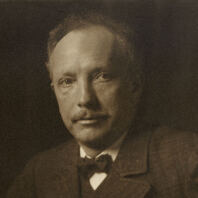Richard Strauss
Composer
Richard Strauss became famous as a composer in his mid-20s, and wrote his last works when he was over 80. He himself closed this circle when he quoted a theme from his tone poem Tod und Verklärung, written six decades earlier, in his 1948 Four Last Songs.
Strauss was surrounded by orchestral music from an early age, as his father was a horn player at the Munich Hofoper. This early exposure was to pay off – Strauss developed into a supreme master of the art of orchestration. After two early symphonies, several solo concertos, chamber music and numerous lieder, two genres dominated the composer’s work: symphonic poems and operas. Between 1886 and 1915, he wrote ten programmatic orchestral works inspired by Shakespeare’s Macbeth, Lenau’s Don Juan, Cervantes’s Don Quixote and Nietzsche’s Also sprach Zarathustra, among others. Richard Strauss was also one of the influential musicians of his time as a conductor. He conducted numerous concerts with the Berliner Philharmoniker between 1888 and 1939. Strauss’s career as an opera composer began with a scandal: the Viennese premiere of his Salome was banned because of the “perverse sensuality” of the material. All the greater was the excitement of the Dresden audience, where the opera celebrated its premiere shortly afterwards. Today, it is impossible to imagine the repertoire without Strauss’s stage works. In particular, the operas written in collaboration with the poet Hugo von Hofmannsthal, such as Elektra, Der Rosenkavalier and Die Frau ohne Schatten, are to be found in opera house repertoires all over the world.